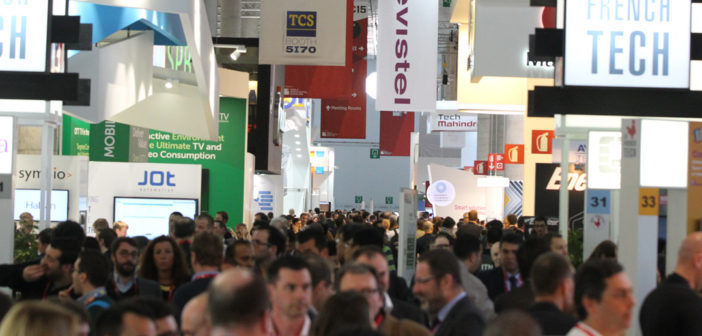Outlines mobile expectations from the world’s largest mobile conference
As all eyes turn to the Mobile World Congress (MWC) in Barcelona this month, Ovum’s analyst team have gathered their views regarding what they expect to see at the world’s largest and most highly regarded mobile industry event.
A key theme, which recurs throughout the report, is the belief that MWC 2017 will mark a further shift in the evolution of the industry, towards a world where the internet is everywhere, every ‘thing’ is smart and machines are ever more intelligent. The companies analysts also note that the conference seems to be moving ever further away from a purely mobile-focused event towards anything related to the internet and emerging technologies.
Smart living will perhaps be the biggest overall consumer theme at MWC this year. The concept captures an array of devices and services that will increasingly augment customers’ daily lives, from energy metering to health monitoring, smart cars, fridges and washing machines.
The team also predict a focus on entertainment, enabled by new partnerships across the telecoms, media and technology industries. Ovum expects Netflix’s CEO, Reed Hastings, for example, to address the topic of collaborating with mobile operators in a bid to tackle slowing growth following the online video giant’s landmark global expansion last year.
The company’s analysts will also turn their attention to the growing spread of the Internet of Things (IoT), artificial intelligence (AI) and social communications across devices, networks, platforms and services for both consumers and businesses and the increasingly interesting space between these two converging markets.
Ovum analysts are predicting a plethora of trends. There will be a turning point for mobile video, said Rob Gallagher, research director, consumer services. Gallagher sees Netflix, big media brands and other video-streaming providers call for new modes of collaboration with mobile operators. Also more about how to improve the quality and economics of live-streaming, 4K UHD, virtual reality and other forms of mobile video.
Alexandra Rehak, practice leader, IoT, expects to see many new IoT initiatives and business models for both B2B and B2B2C use cases. She will be looking out for the growth of LPWA deployments (particularly NB-IoT), IoT data value propositions, creative IoT managed service offerings designed to ‘make it simple’ for customers, and automotive OEMs’ evolution into technology leaders.
Mike Philpott practice leader, consumer services, is looking forward to seeing how mobile will integrate with smart home technology; think mobile apps to regulate your thermostat from wherever you are. There will also be a lot of discussion and announcements around personal assistants like Amazon’s Alexa, so tune in.
Meanwhile, Ronan de Renesse, consumer technology analyst, thinks MWC 2017 will be the comeback year for ‘old’ smartphone brands like Blackberry, Motorola, and Nokia to compete with current market leaders. On top of that, he also expects to see a lot of movement in the AI market.
And on the rise of chat apps, Pamela Clark-Dickson, lead analyst, communications and social networking, says Ovum’s research has highlighted the vast size of the chat apps economy – an estimated 4.7 billion user base across WhatsApp, Facebook, Messenger and WeChat by end 2017 – and Clark-Dickson is expecting 2017’s MWC to provide more insights into how the market will keep on growing and also begin engaging with AI.
Virtual reality (VR) will become practical said Paul Jackson, principal analyst, digital media. He expects to see a second wave of VR headsets aimed at improving on the largely mediocre experiences offered by last year’s devices, plus various parties seeking to copy the success Pokemon Go had with augmented reality.
Daryl Schoolar, practice leader, service provider technology, said with Ovum’s recent forecast that 5G will hit 25 million subscriptions worldwide in 2021, he reckons 2017 is the year we will hear more detail from the 5G front-runners and their pre-standard 5G trial and launch plans. That also means you can expect to hear plenty of vendor announcements about commercial ready pre-5G solutions. Ovum is expecting 5G handsets to go on sale in 2020, alongside the first 5G networks, and will ramp quickly.
Finally, Dario Talmesio, practice leader, Europe, stated that this time last year Ovum announced that global mobile penetration had reached 100% by the end of 2015, meaning that on average there was one SIM card per person on the planet. This year Talmesio is looking forward to finding out more about the disappearance of the SIM card as we know it, and explore the options and impact of the rise of the eSIM, after operator-friendly reprogrammable SIM cards hit an important milestone at the end of 2016. However, eSIM is not likely to overtake the traditional SIM card any time soon; Ovum predicts 4% of smartphones will contain an eSIM by 2019.





